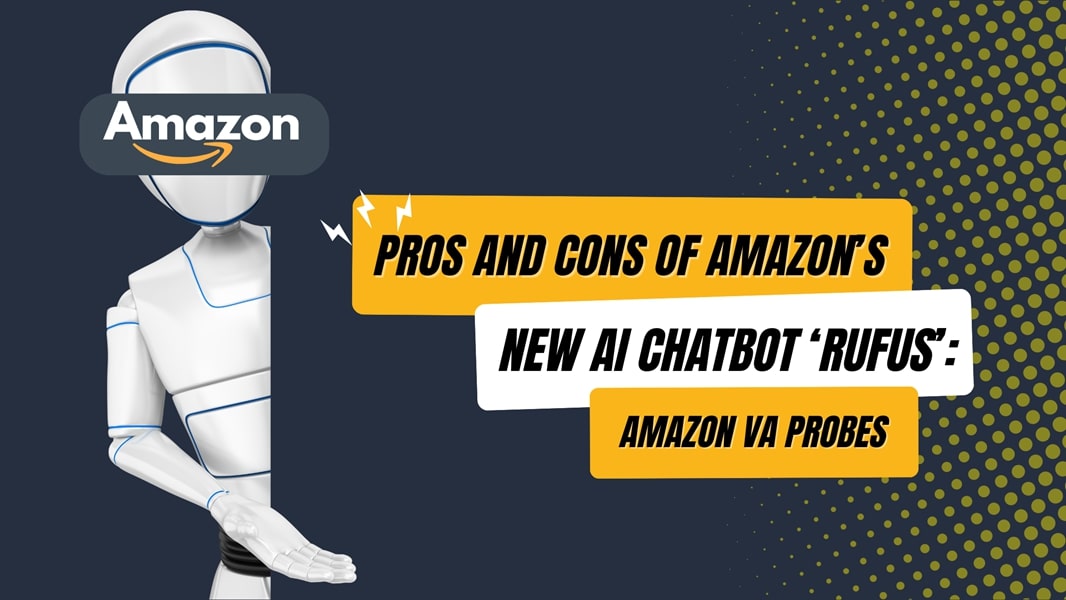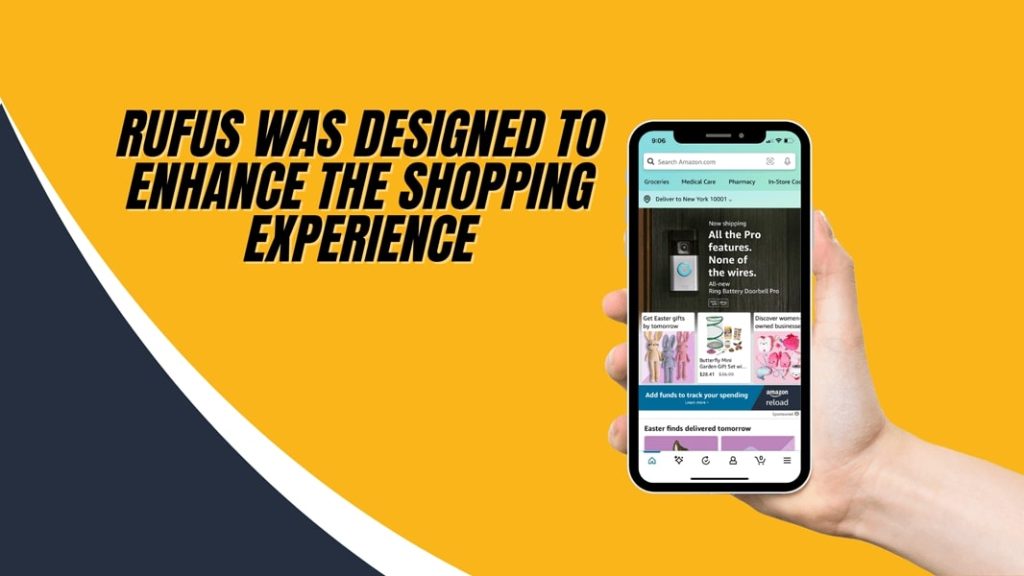

Have you heard? Amazon is incorporating a generative Artificial Intelligence (AI) chatbot called Rufus to its shopping platform.
Rufus has been trained using the product catalog and web data of Amazon and can be accessed by swiping up from the bottom of the Amazon shopping app. The standard search bar at the top of the screen is still there—Rufus merely acts as a way to build upon it. It’s technically a virtual assistant for shoppers, but it is nothing compared to an Amazon VA (Virtual Assistant) for sellers.
Nonetheless, the feature is relatively new, so it’s understandable that users would have mixed reactions about its efficiency. Here are the pros and cons of Rufus as carefully probed by an expert Amazon VA so you won’t have to.

AI tools are developed to help improve the quality of human lives. The creators of Rufus definitely had that mission in mind. The following are some of the notable features that make Rufus a valuable tool.
Rufus is able to provide tailored product recommendations according to the user's browsing behavior and preferences.
You don’t have to navigate through the app or website to know more about the product you’re looking for. Simply type your queries and Rufus will provide you with relevant information.
Since Rufus is an AI tool, as long as you’re connected to the internet, you can access it at any time of the day or night.
Rufus saves you the time and hassles of having to search about a product manually and sorting the most relevant information.
Over time, Rufus can learn from interactions and refine its responses to give users enhanced support.
Not all inventions are created perfect in the first try. So it’s only fair to cut Rufus some slack and not think of the following cons as a deal-breaker, but instead areas to improve on:
Because Rufus is trained on Amazon’s web catalog database, product suggestions run the danger of algorithmic bias, which might result in unfair or prejudiced results.
Being a work in progress, Rufus might have downtime or technical issues like any other software, which could get in the way with potential buyers' shopping experience.
As an AI tool, Rufus might have difficulty responding to complicated questions or requests that need a sophisticated level of human comprehension.
Considering that Amazon exists in over 50 countries all around the globe, Rufus’ ability to interpret many languages and dialects might be limited, which could restrict its usefulness for certain users.
In some circumstances, Rufus might not be able to manage circumstances that depart from its pre-programmed capabilities, which could result in an outdated user experience.
While Rufus was designed primarily to enhance the shopping experience of the users, a bigger chunk of customers’ satisfaction heavily depends on the sellers themselves. That’s why hiring an Amazon VA from reputable agencies like VAA Philippines is important. Amazon VAs streamline your business operations from ground up so you would have time to focus on scaling. There’s a reason why there’s a specific Amazon VA for every area of your Amazon business:
Remember, a well-managed business only yields positive results—happy customers above all. So Rufus can either succeed or flop, but the future of your Amazon business ultimately lies on your Amazon VA.